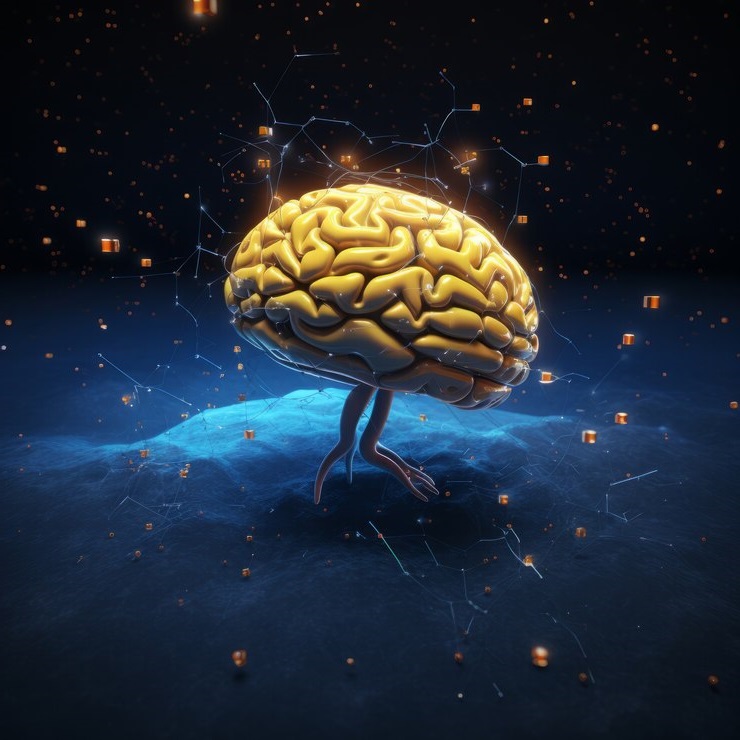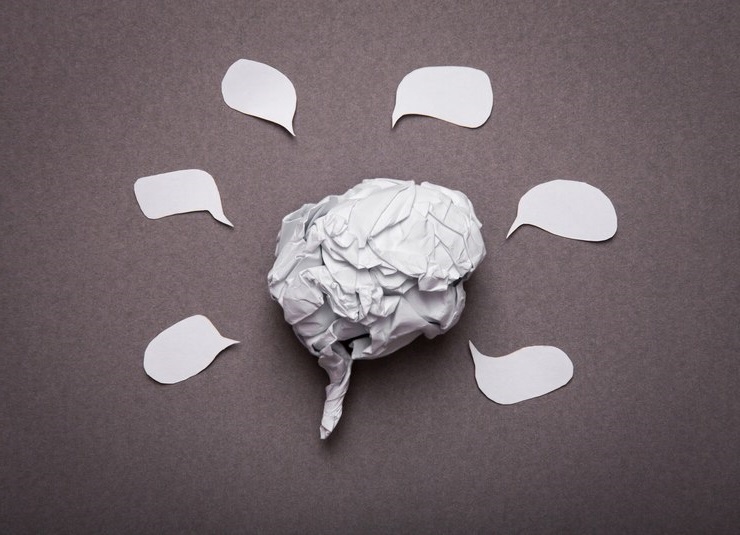
Have you ever wondered why your brain power feels weak or sluggish? It can be frustrating when you struggle to concentrate, remember things, or think clearly. There are many potential causes for weak brain power, and understanding these factors can help you take steps to improve your cognitive function. In this article, we will explore some of the common reasons why your brain power may be weak and discuss strategies to boost your mental abilities.
Potential Causes of Weak Brain Power
Lack of sleep
Sleep is essential for optimal brain function. When you don’t get enough sleep, your cognitive abilities can suffer. Lack of sleep can impair your attention, memory, and problem-solving skills. It can also affect your mood and increase the risk of mental health disorders. To improve your brain power, prioritize getting enough quality sleep each night. Aim for 7-9 hours of sleep for adults and more for children and teenagers.
Poor nutrition
Your brain needs proper nutrition to function at its best. A diet lacking in essential nutrients can negatively impact your cognitive abilities. Consuming a diet high in processed foods, sugar, and unhealthy fats can lead to inflammation and oxidative stress in the brain, impairing its function. To support your brain health, focus on a balanced diet rich in fruits, vegetables, whole grains, lean proteins, and healthy fats.
Chronic stress
Chronic stress can take a toll on your brain power. Prolonged exposure to stress hormones like cortisol can damage brain cells and impair cognitive function. Stress can also lead to anxiety, depression, and other mental health disorders that further impact brain function. To reduce stress and improve brain power, practice stress management techniques such as exercise, meditation, deep breathing, and engaging in activities you enjoy.
Sedentary lifestyle
A sedentary lifestyle can negatively affect your brain power. Lack of physical activity can lead to poor blood circulation to the brain, reducing the delivery of oxygen and nutrients necessary for optimal brain function. Regular exercise has been shown to improve cognitive function, memory, and attention. Aim for at least 150 minutes of moderate-intensity exercise per week, along with strength training exercises.
Lack of mental stimulation
Your brain needs regular mental stimulation to stay sharp and improve its power. Engaging in activities that challenge your brain, such as puzzles, reading, learning a new skill, or playing a musical instrument, can help improve cognitive function. Make it a habit to incorporate mentally stimulating activities into your daily routine.
Substance abuse
Substance abuse, including alcohol, drugs, and tobacco, can have detrimental effects on brain power. These substances can damage brain cells, impair memory and cognitive function, and increase the risk of mental health disorders. If you’re struggling with substance abuse, seek professional help to overcome addiction and improve your brain health.
Chronic illness or medical conditions
Chronic illnesses or medical conditions can impact brain power. Conditions such as diabetes, heart disease, autoimmune disorders, and hormonal imbalances can affect cognitive function. Managing these conditions effectively and seeking appropriate medical treatment can help improve brain power.
Aging
As we age, our brain power naturally declines. Cognitive abilities such as memory, processing speed, and attention may decrease. However, there are steps you can take to slow down age-related cognitive decline. Engaging in regular physical exercise, maintaining a healthy diet, staying mentally active, and managing chronic health conditions can help preserve brain function as you age.
Genetic factors
Genetic factors can play a role in determining your brain power. Certain genetic variations may predispose individuals to conditions such as Alzheimer’s disease, dementia, or other neurological disorders that can impact cognitive function. While you can’t change your genetics, adopting a healthy lifestyle can help mitigate the effects of genetic factors on brain power.
Environmental toxins
Exposure to environmental toxins, such as heavy metals, pesticides, and air pollution, can negatively affect brain power. These toxins can lead to inflammation and oxidative stress in the brain, impairing cognitive function. Minimize your exposure to environmental toxins by avoiding polluted areas, eating organic foods, and using natural cleaning and personal care products.
Head injuries or trauma
Head injuries or trauma can have long-lasting effects on brain power. Concussions, for example, can lead to cognitive impairments, memory problems, and difficulty concentrating. If you’ve experienced a head injury or trauma, it’s important to seek medical attention and follow appropriate treatment protocols to support brain healing and recovery.
Hormonal imbalances
Hormonal imbalances, such as thyroid disorders or hormonal changes during menopause, can impact brain power. Hormones play a crucial role in brain function, and imbalances can lead to cognitive difficulties, mood changes, and memory problems. If you suspect a hormonal imbalance, consult with a healthcare professional to address the issue and optimize your brain health.
Chronic pain
Chronic pain can significantly impact brain power. Persistent pain can lead to cognitive impairments, memory problems, and difficulty concentrating. Managing chronic pain effectively through appropriate pain management strategies can help improve brain function.
Medications with cognitive side effects
Some medications can have cognitive side effects, leading to weak brain power. Certain antidepressants, antipsychotics, sedatives, and antihistamines can cause drowsiness, confusion, and memory problems. If you’re experiencing cognitive side effects from medication, consult with your healthcare provider to explore alternative options.
Mental health disorders
Mental health disorders such as depression, anxiety, bipolar disorder, and schizophrenia can impact brain power. These conditions can affect cognitive function, memory, attention, and overall mental abilities. Seeking appropriate treatment and therapy for mental health disorders can help improve brain power.
Lack of social interaction
Isolation and lack of social interaction can contribute to weak brain power. Socializing and engaging in meaningful relationships stimulate the brain and support cognitive function. Make an effort to connect with others, join social groups or clubs, and participate in activities that involve interaction with others.
Excessive screen time
Excessive screen time, whether from smartphones, computers, or television, can negatively impact brain power. Spending too much time in front of screens can lead to decreased attention span, poor memory, and reduced cognitive abilities. Limit your screen time and take regular breaks to give your brain a rest.
Poor memory or learning skills
Individuals with poor memory or learning skills may experience weak brain power. These difficulties can be due to various factors, including underlying neurological conditions, lack of effective learning strategies, or inadequate brain development during childhood. Working with a professional, such as a cognitive therapist or educational specialist, can help improve memory and learning skills.
Lack of motivation or interest
Lack of motivation or interest in activities can contribute to weak brain power. When you’re not engaged or interested in what you’re doing, your brain may not function at its best. Finding activities that you enjoy and are passionate about can help boost your brain power and overall cognitive abilities.
Inadequate brain development during childhood
Brain development during childhood lays the foundation for cognitive abilities later in life. Inadequate brain development due to factors such as malnutrition, neglect, or lack of stimulation can lead to weak brain power. Early intervention and providing a nurturing and stimulating environment for children can support optimal brain development.
Neurological disorders or diseases
Neurological disorders or diseases, such as Alzheimer’s disease, Parkinson’s disease, multiple sclerosis, or stroke, can significantly impact brain power. These conditions can cause cognitive impairments, memory problems, and difficulties with thinking and reasoning. Managing these conditions with appropriate medical treatment and therapies can help improve brain function.
Poor blood circulation to the brain
Proper blood circulation is crucial for delivering oxygen and nutrients to the brain. Poor blood circulation, often due to conditions like high blood pressure, diabetes, or cardiovascular disease, can impair brain function. Adopting a healthy lifestyle, including regular exercise, a balanced diet, and managing underlying health conditions, can improve blood circulation to the brain.
Vitamin or mineral deficiencies
Deficiencies in essential vitamins and minerals can impact brain power. Nutrients like omega-3 fatty acids, B vitamins, vitamin D, magnesium, and iron play a vital role in brain function. A balanced diet rich in these nutrients or supplementation under the guidance of a healthcare professional can help support optimal brain health.
Excessive alcohol consumption
Excessive alcohol consumption can have detrimental effects on brain power. Alcohol is a neurotoxin that can damage brain cells, impair memory and cognitive function, and increase the risk of mental health disorders. Limiting alcohol intake or avoiding it altogether can help improve brain health.
Smoking or tobacco use
Smoking or tobacco use can negatively impact brain power. Nicotine and other harmful chemicals in tobacco can constrict blood vessels, reducing blood flow to the brain. This can lead to cognitive impairments, memory problems, and decreased overall brain function. Quitting smoking or avoiding tobacco products can improve brain health.
Lack of exercise or physical activity
A sedentary lifestyle and lack of exercise can weaken brain power. Regular physical activity increases blood flow to the brain, stimulates the release of beneficial chemicals, and supports the growth of new brain cells. Incorporate exercise into your daily routine to enhance brain function.
Excessive multitasking
Constantly multitasking can overload your brain and weaken its power. Trying to focus on multiple tasks simultaneously can lead to decreased productivity, increased stress, and reduced cognitive abilities. Practice single-tasking and prioritize your tasks to improve brain power and efficiency.
Lack of organization or time management skills
Poor organization and time management skills can contribute to weak brain power. When you’re disorganized or struggle to manage your time effectively, it can lead to increased stress, decreased productivity, and difficulty focusing. Developing organizational strategies and time management techniques can help improve brain function.
Chronic fatigue or exhaustion
Chronic fatigue or exhaustion can significantly impact brain power. When you’re tired, your cognitive abilities, memory, and attention suffer. Prioritize getting enough rest and practicing good sleep hygiene to combat fatigue and improve brain function.
Inadequate hydration
Dehydration can negatively affect brain power. Even mild dehydration can impair cognitive function, memory, and attention. Make sure to drink enough water throughout the day to stay properly hydrated and support optimal brain health.
As you can see, there are numerous factors that can contribute to weak brain power. Identifying the underlying causes and taking steps to address them can help improve your cognitive abilities and enhance your overall brain function. By prioritizing sleep, nutrition, exercise, mental stimulation, and stress management, you can boost your brain power and unlock your full cognitive potential.





